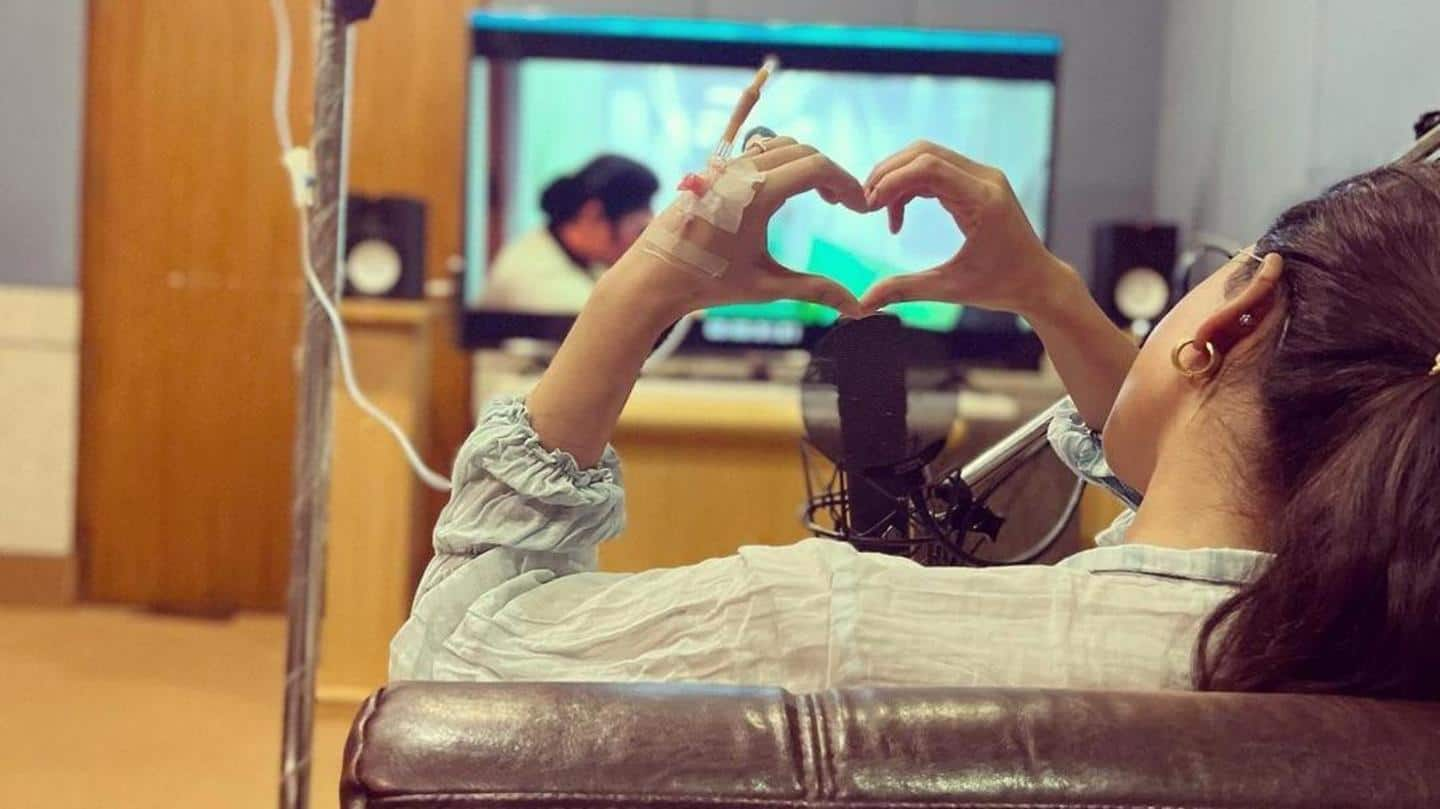
What is Myositis, the disease Samantha Ruth Prabhu is battling?
What's the story
Samantha Ruth Prabhu took to Instagram to share a personal update on Saturday (October 29).
After thanking fans for the overwhelming love and support bestowed on the trailer of her upcoming movie Yashoda, the actor revealed that she is suffering from an autoimmune condition called myositis.
The 35-year-old also expressed optimism about "being closer to recovery."
Here's all you need to know about myositis.
Post
But first, take a look at what Ruth Prabhu posted
Ruth Prabhu has penned a long note on Instagram.
Part of her statement read, "A few months back, I was diagnosed with an autoimmune condition called Myositis. I was hoping to share this after it had gone into remission. But it is taking a little longer than I hoped."
"The doctors are confident that I will make a complete recovery very soon," she added.
Definition
Myositis causes include 'infection, injury, autoimmune conditions'
WebMD defines myositis as "any condition causing inflammation in muscles."
Infection, injury, autoimmune conditions, and drug side effects can typically cause myositis.
As per the UK's NHS, the patient may trip or fall a lot and become extremely tired after walking or standing.
"Myositis is usually caused by a problem with your immune system, where it mistakenly attacks healthy tissue," says the NHS.
Types
These are the different types of the disease
There are multiple types of myositis that feed on one's body in different ways, further aggravating the situation.
These include dermatomyositis, inclusion-body myositis, juvenile myositis, polymyositis, and toxic myositis.
While dermatomyositis causes "purple-red rashes," inclusion-body myositis triggers "loss of grip and muscle pain."
Juvenile myositis mainly affects children, while polymyositis and toxic myositis result in muscle weakness and dry cough and breathing problems, respectively.
Symptoms
In comparison, women are generally affected more than men
Myositis is a rare disease that can be difficult to diagnose; its cause is sometimes unknown. While the symptoms appear rapidly in some patients, they can also arise gradually over time in others.
Per Healthline, primary symptoms include "muscle pain and soreness, fatigue, trouble swallowing, and difficulty breathing."
Studies also show that women are more likely to be affected by myositis—barring inclusion-body myositis—than men.
Treatment
If left untreated, the disease may restrict mobility, cause death
Health experts opine that there's no specific treatment to cure the disease, and the plan of action varies from one patient to the other.
"Physical therapy, exercise, stretching, and yoga can help keep muscles strong and flexible and prevent muscle atrophy," says Healthline.
Moreover, in case the disease is not treated timely, it may restrict mobility and, in grave scenarios, even catalyze death.